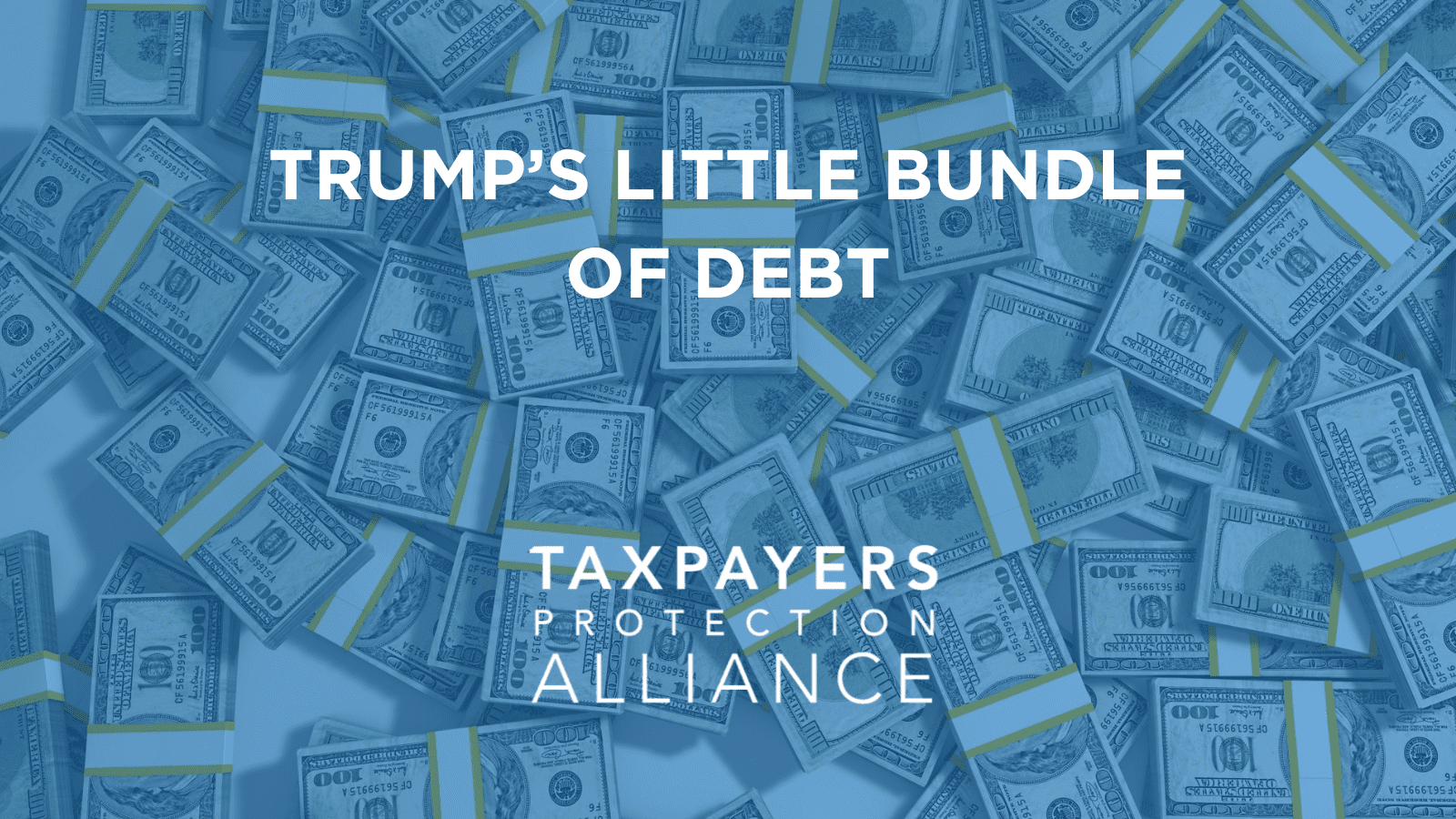
Trump’s Little Bundle of Debt
Christina Smith
July 8, 2025
It’s hard to focus on any one piece of the recently passed and highly contentious One Big Beautiful Bill (OBBB). Broad-based tax relief is jumbled in with spending hikes, bizarre new taxes (e.g., the remittance tax), and new loopholes that further distort an already-complicated tax code. These gimmicks add up, and not in a good way for taxpayers. The Congressional Budget Office (CBO) published its score of the OBBB, finding that it will add an astounding $3.4trillion to deficits over the next ten years. Hidden among the big-ticket provisions and seldom discussed are newly created “Trump accounts.” These tax-advantaged savings accounts for newborns will include $1,000 of taxpayer-funded seed money for children born between 2025 and 2028. While it’s laudable to encourage savings and wealth accumulation, padding diapers with debt will only lead to taxpayer tears and a cradle of red ink. Future generations deserve a better and more fiscally sustainable approach.
While too many lawmakers fell in (party) line and supported the OBBB, a courageous few members of Congress warned of the dire consequences of not getting the $37 trillion debt under control. Rep. Thomas Massie (R-KY), the fiscally responsible representative from Kentucky posted on X after the vote: “Although there were some conservative wins in the budget reconciliation bill (OBBBA), I voted No on final passage because it will significantly increase U.S. budget deficits in the near term, negatively impacting all Americans through sustained inflation and high interest rates.” This statement from Rep. Massie was on point: every dollar added to the debt and deficit is a threat to America and a repudiation of promises made by President Trump.
Taxpayer-funded handouts aside, the concept of tax-advantaged accounts isn’t a bad one or particularly new. After all, encouraging individuals to start investing for their children at a young age, and watching the money grow tax-free is a great way to build wealth. None other than the great Albert Einstein pointed out, “Compound interest is the eighth wonder of the world. He who understands it, earns it … he who doesn’t … pays it.” Warren Buffett has been caught uttering similar sentiments: “Time is your friend; impulse is your enemy. Take advantage of compound interest and don’t be captivated by the siren song of the market.”
The problem with Trump Accounts is not the concept of investing tax-free over a long-time horizon, but that taxpayers are left holding the bag for the accounts. While $3.5 billion per year in direct costs seems small compared to nearly $2 trillion in annual deficits, these expenses add up. And, critically, any taxpayer costs will inevitably be borne by the Trump Account recipients when they are all grown up. It’s an endless Ferris wheel of handouts and high taxes, and America’s children and grandchildren will have to pay the price—plus interest. Simply put, centrally planning financial independence isn’t the right solution.
There are also significant logistical issues with the accounts. For example, individuals may not be aware that they have been assigned the accounts or that their names are associated with them, which can lead to numerous problems, including fraud, abuse, and inadequate oversight of the accounts. The accounts are also conveniently only available to babies born during the Trump administration. Yet another issue with the accounts is their duplicative nature. Their structure is similar to Education Savings Accounts (ESAs), which allow for tax-exempt savings at the state level for future educational expenses, or Uniform Gifts to Minors Act (UGMA) accounts, which enable parents to save and invest for their children, albeit without the tax advantages. To simplify the number of savings accounts with specific restrictions and tax advantages offered in the U.S., lawmakers should consider consolidating these myriad account options and create one universal savings account that would allow all individuals to save a particular amount of dollars tax-free each year. This would encourage long-term savings without handouts and future bailouts and tax hikes. It’s long past time for a rebirth of fiscal responsibility and pro-growth reforms.
